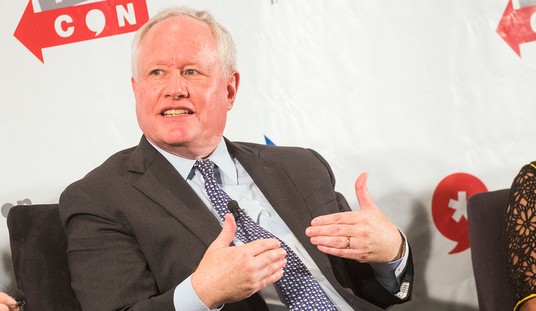The left has been truly desperate to avoid being linked to cancel culture for several years now. It was common a few years ago, when student disruptions on college campuses were popping up regularly, for people on the left to argue the whole idea of cancel culture idea was overhyped, right-wing nonsense. Gradually, the evidence has become so pervasive that the cottage-industry denying its existence has mostly died off. Now what you see a lot are pieces like this one by Ezra Klein trying to rationalize it.
Klein still denies that cancel culture exists but with something of a twist. He admits that “cancel behavior” is real enough, he’s just eager to say it’s a problem that’s prevalent on both the right and the left.
It would be better to focus on cancel behavior than cancel culture. There is no one ideology that gleefully mobs or targets employers online. Plenty of anti-cancel culture warriors get their retweets directing their followers to mob others.
Klein’s piece is full of this kind of wishful both-sidesism. He admits that wokeness is driving a lot of this now but invites readers to imagine what cancel culture might have been like after 9/11 if social media had existed then as it does now:
Wokeness has particular economic power right now because corporations, correctly, don’t want to be seen as racist and homophobic, but imagine how social media would have supercharged the censorious dynamics that dominated right after 9/11, when even french fries were suspected of disloyalty.
Because Klein mentions this twice, it’s worth pausing to note that the “freedom fries” story has nothing to do with what we now call cancel culture. Indeed, the story he linked to points out that this was an expression of displeasure with France for refusing to join a coalition willing to go to war after the 9/11 attack. You obviously can’t cancel an entire country and no one got fired because of this. All the menus mentioning “freedom fries” eventually went back to serving French Fries. It’s just not cancel culture in any meaningful sense and inviting us to imagine what cancel culture could have been like is really just a way to sidestep the problem of what it is like.
It is true that both left and right sometimes get carried away with trying to punish someone for a bad opinion, but the left has clearly embraced deplatforming as an intentional tactic in ways the right has not. The efforts to silence speakers on college campuses is an obvious example but not the only one. And cancel behavior on the woke left isn’t incidental as Klein suggests at one point.
…many of the people who participate in the digital pile-ons that lead to cancellation don’t want to cancel anybody. They’re just joining in that day’s online conversation. They’re criticizing an offensive or even dangerous idea, mocking someone they think deserves it, hunting for retweets, demanding accountability, making a joke. They aren’t trying to get anyone fired. But collectively, they do get someone fired.
Most of these cancelations aren’t happening because mobs of people don’t realize their own collective strength. They happen because left-wing mobs set out to destroy their enemies, i.e. anyone who has violated their narrow views of social issues can become a target. The people who do it see it as justified, not an accident.
Cancel culture is real and isn’t an incidental part of wokeism. On the contrary it’s fundamental to what wokeism does. It starts from the position that someone (a cop, a college biology professor, one of the world’s best selling authors, etc.) needs to be punished for their bad opinions or behavior and then seeks to enact that punishment by pressuring their employer. Deplatforming is quite literally the goal of these mobs. They feel they have succeeded when their target has been sacked, silenced and shamed. But as much as Klein seems to be in denial about where the problem lies, he does realize there’s a problem when an offhand comment can result in a lifelong punishment:
People should be shamed when they say something awful. Social sanctions are an important mechanism for social change, and they should be used. The problem is when that one awful thing someone said comes to define their online identity, and then it defines their future economic and political and personal opportunities. I don’t like the line that no one deserves to be defined by the worst thing they’ve ever done — tell me the body count first — but let’s agree that most of us don’t deserve to be defined by the dumbest thing we’ve ever said, forever, just because Google’s algorithm noticed that that moment got more links than the rest of our life combined.
What he fails to mention is that on the woke left, speech is increasingly equated with violence and ‘hearing opinions I don’t like’ is often considered tantamount to intentionally doing harm to entire categories of people. You really can’t expect people who see things this way to be reasonable when someone says something dumb.
There is a cultural problem at the root of this which needs to be addressed. If Klein doesn’t quite get it at least some of the NY Times readers do. Here’s the most upvoted response:
President Obama criticising cancel culture in 2019
“This idea of purity and you’re never compromised and you’re always politically ‘woke’ and all that stuff,” Mr. Obama said. “You should get over that quickly.”
“The world is messy; there are ambiguities,” he continued. “People who do really good stuff have flaws. People who you are fighting may love their kids, and share certain things with you.”
I agree
And another upvoted take focused on the woke left:
The result of cancel culture is that people are afraid to say what they think. If I speak up during a “racial sensitivity” session with a contrary view my career will be seriously derailed. Probably many of the people in the room agree but are afraid to say something. Of course my employer is doing this to look woke and hopefully avoid getting cancelled herself.
One more:
I sense a bit of a cop-out here. Sure , corporations are self-interested and not “woke,” yet I place more responsibility, for what may not be legally, yet may be morally, an unjust termination, on what has gone awry with the cultural left.
That’s exactly right. The bulk of this behavior is coming from a specific culture. If you can’t see that, you can’t solve the problem.







Join the conversation as a VIP Member